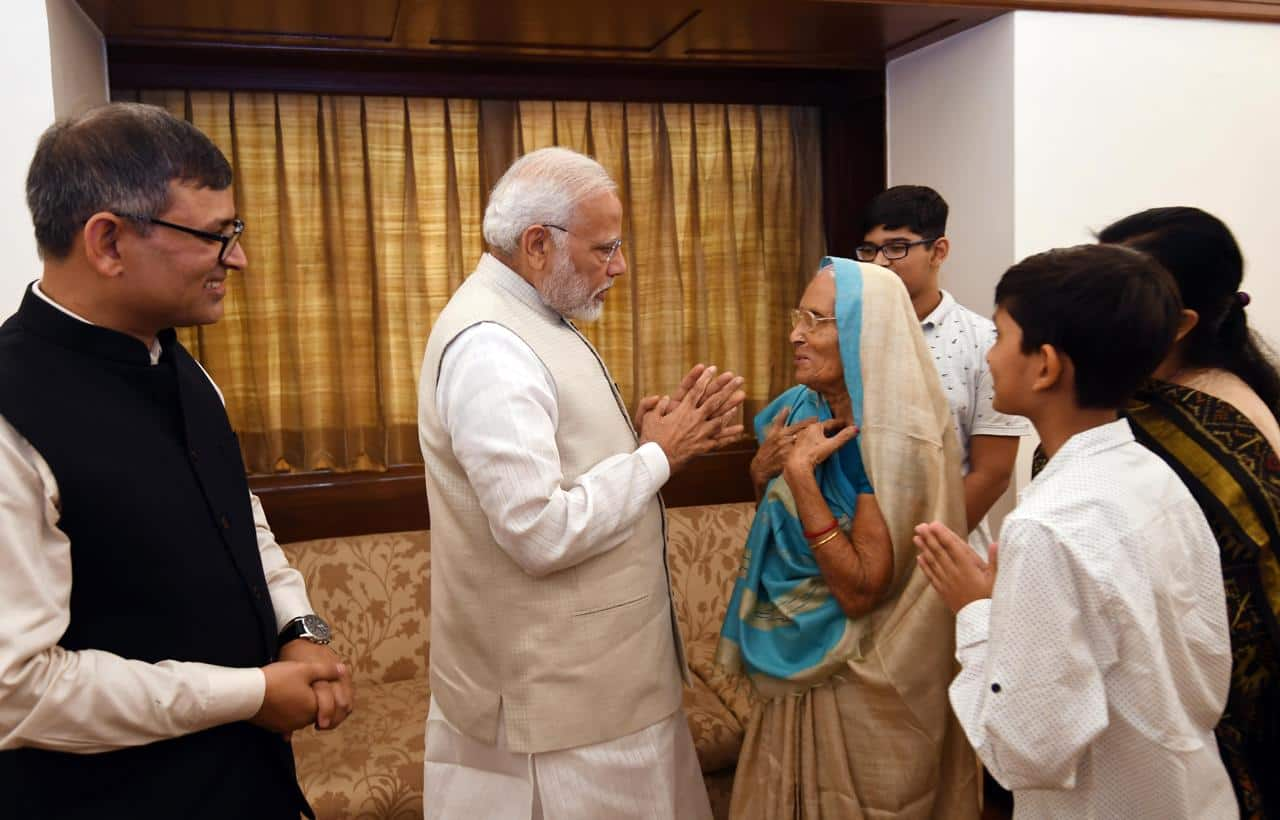



What sets Prime Minister Narendra Modi apart is that beyond being a strong leader, he builds a genuine human connection with those he meets -- a key reason for his wide appeal across generations.
An instance which remains vivid in my memory is when he met my mother, who was battling dementia, in 2018.
My late mother, who passed away last year, spent some time with me in 2018. Around the time of International Yoga Day then, a project was to be inaugurated by PM Modi via video conferencing, something he agreed to at my request.
During our conversation about the project, he remarked that I didn’t seem cheerful and asked the reason. I shared that my mother had dementia. It was a time when other things in life felt stable and happy, but she was unable to experience that joy.
I remember it was June 4. He enquired if my mother stayed with me, and I replied that she was here with me for a few days before leaving for Pune on June 22. He then suggested, “Bring her someday, perhaps she would like to meet.”
I was moved -- these were the words of the Prime Minister himself.
I responded that his time was valuable and told him, “Whenever it’s convenient for you, just let me know and I’ll bring her.”
That’s the difference in him -- the way he connects, the way he values people. He doesn’t just issue instructions; he truly considers the individual.
We were guided straight to Bungalow No. 5. Frankly, I assumed my mother’s meeting with the Prime Minister would be brief, with just a few kind words about her health.

Meeting with the Prime Minister
At 10’o clock sharp, the Prime Minister’s car arrived. An attendant stood before him, holding a box, which was placed on a small table. The Prime Minister told my mother, “I’ve brought this for you.”
Inside the box was litchis from Dehradun.
For my mother – a retired school teacher from 1998, suffering from dementia -- this simple gesture carried extraordinary meaning.
And here was the Prime Minister of India thinking: What special gesture could I do for the woman I am going to meet?
He could easily have just asked someone later to leave a packet on the table, but that wasn’t the point. It was about the emotion.
Only after he handed over the litchis to her did he sit down to have a chat.
Knowing of my mother’s dementia, he started asking her about old days when she began working in 1959 – with the questions varying from the environment that time, struggles of women to the voting and social situation that time.
What’s important to note here that his questions were based on the past given that he knew of her condition. For those who are unaware, people with dementia often forget the recent events but retain the older, most established memories.
At that moment, my mother shared these things with him, full of excitement.
Before leaving, the Prime Minister folded his hands and said, “Mother, please bless me so that I can do something good for the country.”
Calling in the photographer from outside, he added, “Mother, I’d like a photo with you.” The scene was touching -- like any elder member of the family posing with his mother, surrounded by children.
He gently gave her the litchis, filling the children’s pockets with chocolates. It is these small but heartfelt gestures that explain why Narendra Modi is cherished by so many.
(Brajesh Kumar Singh is a veteran journalist who has covered Indian politics for over 30 years. He is currently serving as Group Editor at Network18)
Discover the latest Business News, Sensex, and Nifty updates. Obtain Personal Finance insights, tax queries, and expert opinions on Moneycontrol or download the Moneycontrol App to stay updated!